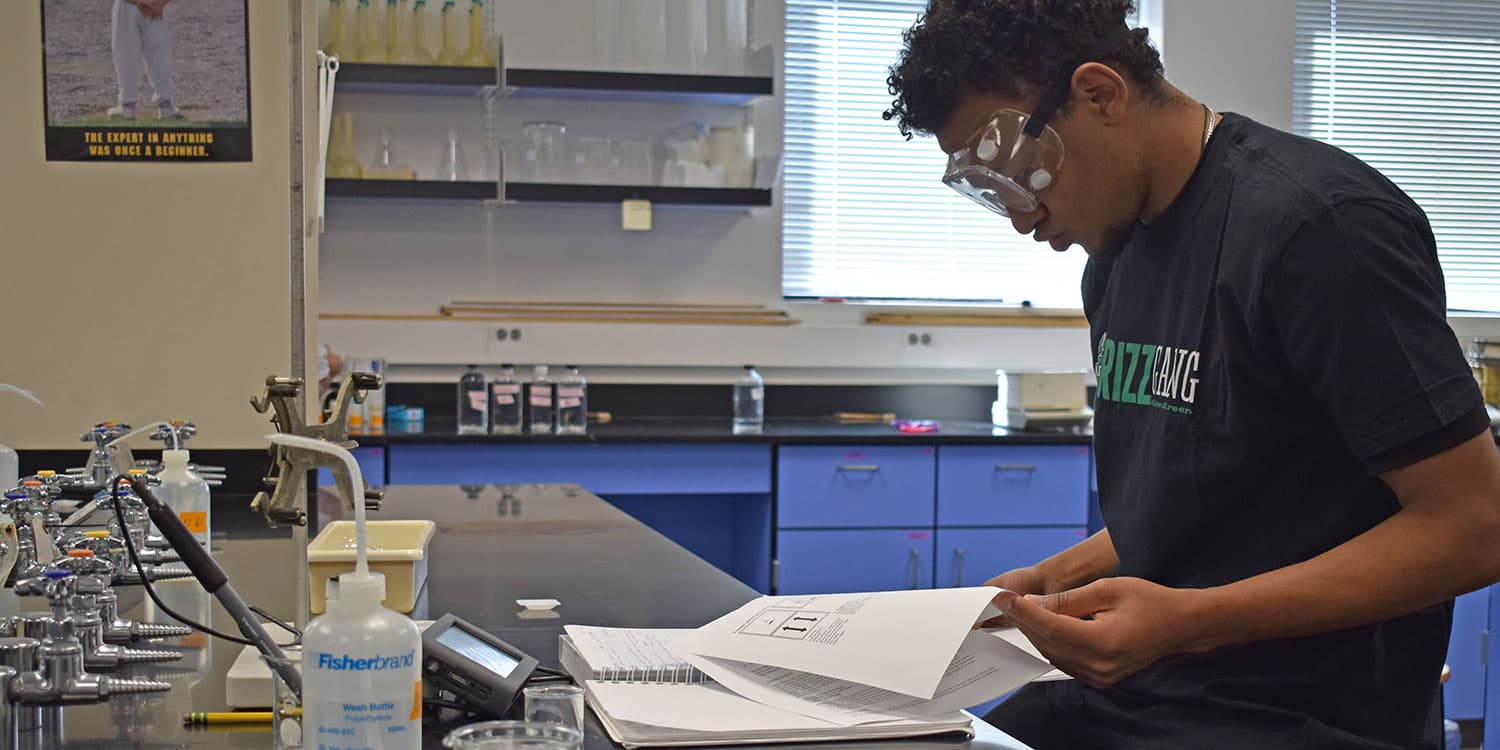Adams State University received a National Science Foundation $1.2 million grant as a Robert Noyce Teacher Scholarship Program. “Developing STEM Teachers Across Rural Schools: Using STEM Outreach Programs to Build and Strengthen Identity as STEM Teachers” will provide cost-of-attendance scholarships for undergraduate and graduate students to begin fulfilling teacher licensure requirements for secondary science or math.
Principal Investigator (PI) Meredith Anderson, Ph.D., associate professor of mathematics, and co-PIs Matt Nehring, Ph.D., professor of physics and interim director of the STEM School; Bev Devore-Wedding, Ph.D., School of Education assistant professor and program coordinator curriculum and instruction; Curtis Garcia, Ph.D., School of Education director and associate professor; and Michelle Mann, Ph.D., School of Education assistant professor; will partner with Alamosa, Center, Monte Vista, North Conejos, and South Conejos School Districts and the San Luis Valley Board of Cooperative Services (BOCES), which serves all 14 school districts in the Valley.
“We are most excited about the potential to deepen collaboration with local school districts to provide high impact experiences for their students, while recruiting more people to join the teaching profession as STEM educators,” Dr. Garcia said.
Implementation of “Developing STEM Teachers Across Rural Schools (Developing STARS)” begins July 1, with the first cohort of STEM teacher candidates expected to start their licensure preparation work in fall 2023. “We recognize the financial burden associated with pursuing teacher licensure can discourage some students from pursuing a degree,” Dr. Nehring said. “The scholarship assistance should greatly reduce financial concerns and allow students more time and energy to focus on learning the STEM content as well as best practices in education.”
The Schools of Education and STEM will collaborate to design and deliver high impact activities for K-12 students, while enhancing community outreach (via campus events, community college events, and events at other regional IHEs) to recruit STEM educators for the San Luis Valley. Activities include astronomy-focused activities at Zacheis Planetarium or the Adams State Observatory; STEM Saturdays; Science Fair; the annual Chemistry Magic Show; and use of the STEAM Shop for events and projects.
The School of Education will train up to eight new candidates each year to become fully licensed math or science teachers under the grant.
“Adams State is committed to offering future teachers the best programs to make them successful and is constantly seeking opportunities to support our local school districts in recruiting and retaining high quality educators,” Dr. Garcia said. “This grant will expand our capabilities in both those areas and increase our ability to address critical teacher shortages in STEM areas within regional school districts.”
Noyce Scholars will have opportunities to assist in addressing Developing STARS research questions including: “Does Adams State’s program of high impact experiences for Noyce Scholars in a culture of P-20 STEM activity build their identity as future STEM teachers?” and “Do program activities increase enrollment, retention, and completion rates of STEM degrees and teaching licensure programs and support Noyce Scholars to become effective teachers in high needs rural schools?”
Adams State Grant Specialist Tawney Becker assisted the Schools of STEM and Education applying for the grant. “This was truly a huge team effort. Thanks to the dedication and passion of the faculty team who were committed to make this happen. It was an honor to support them.”
Abstract Summary:
The project aims to serve the national need for preparing high-quality teachers in STEM disciplines, which is particularly severe in rural southern Colorado. Adams State University’s project will examine the effects of place-based high-impact experiences and cost-of-attendance scholarships on developing effective STEM teachers in high-need schools. Using the excitement of astronomy and rural dark skies, collaborative math and science circles, STEM Saturdays, and a summer academy for migrant students, this project aims to inspire prospective and practicing teachers to develop new approaches in STEM teaching and learning and generate P-20 enthusiasm for careers in K-12 STEM education. This model has the potential to increase the number of students completing STEM degrees with teaching licensure from a single Adams State student to eight per year. Increased representation of underserved groups among rural teachers to improve equity in access to STEM education and careers for students of color and those who are low-income is a priority outcome. Visit Complete Abstract.
The Robert Noyce Teacher Scholarship Program
The NSF Robert Noyce Teacher Scholarship Program seeks to encourage talented science, technology, engineering, and mathematics (STEM) majors and professionals to become K-12 mathematics and science (including engineering and computer science) teachers. The program invites creative and innovative proposals that address the critical need for recruiting and preparing highly effective elementary and secondary science and mathematics teachers in high-need local educational agencies.



